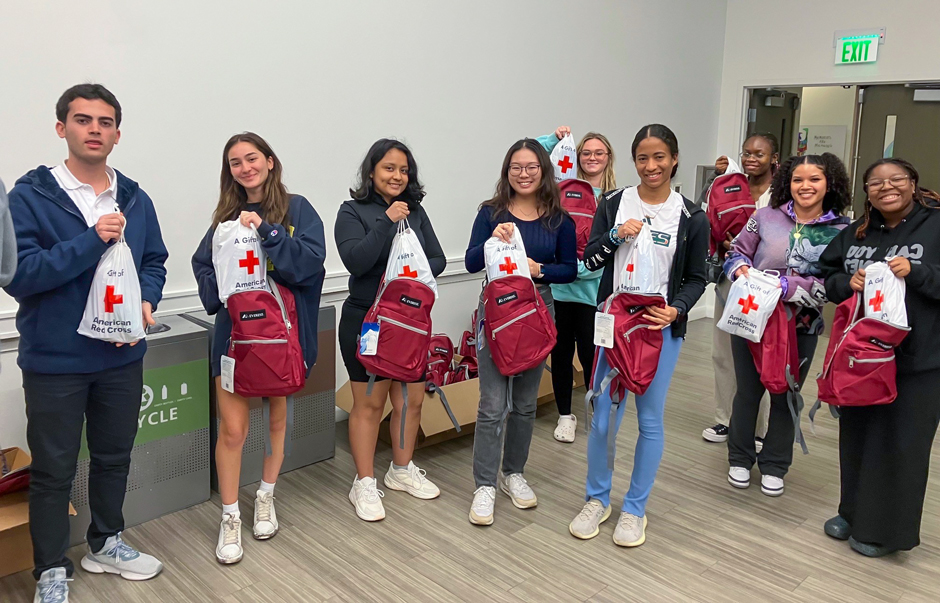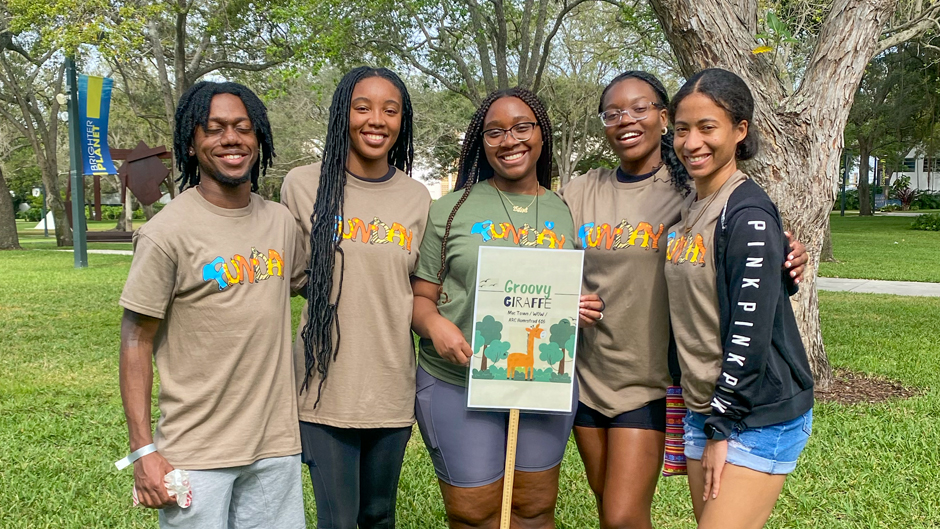Hannah Bethel, a junior at the University of Miami, has logged about 2,000 hours volunteering at the Bruce W. Carter Department of Veterans Affairs Medical Center.
For Bethel, who hopes to be a research physician, volunteering is not only a way to learn about health care but also a way to get to know the patients, their life stories, and what conditions brought them to the clinic.
Bethel was honored by the University’s Butler Center for Service and Leadership for her extraordinary work.
“Everybody should start volunteering because it is incredibly gratifying,” she said. “I think people innately want to help other people. Besides my official volunteering, if someone on the street needs help, I help them. Volunteering makes you a better person.”
Bethel is not alone. About 60 million people officially volunteer in the United States, according to AmeriCorps. Research shows that those who consistently help other people experience less depression, greater calm, fewer pains, and better health. They may even live longer.
Lindsey Goldstein is the associate director of the Butler Center, which offers a wide range of volunteer and advocacy-based service opportunities throughout the community for students. She said many students volunteer because they can meet other students, create a sense of community, and become social agents for a particular cause.
The Butler Center strives to also emphasize that volunteerism can be fun. A recent project took students to Zoo Miami to build a trail.
“They had to work hard, but they also got to enjoy a shared experience exploring the zoo and looking at the animals,” she said.
Goldstein also believes that most student volunteers do it because they have an innate motivation to do so. If not, they would not choose to use their free time, during recesses such as spring break, to do community service, she said.
One such person is Veronica Richmond. A junior, Richmond started volunteering in elementary school. For the past three spring breaks, she has spent her time doing community projects. These included helping to save the marshes at the Jug Bay Wetlands Sanctuary in Lothian, Maryland, and hauling hundreds of wheelbarrows of sand at the Laura Quinn Wild Bird Sanctuary in the Florida Keys.
“There’s so much love in volunteering,” she said. “It takes intrinsic motivation and kindness to seek out and take opportunities to do the dirty work that makes the world better.”
Many people help others because they are motivated by religious beliefs and a sense of community. David W. Kling, professor of religious studies in the College of Arts and Sciences, said that studies show that all religious traditions emphasize that helping others should be an important part of their practices.
“One thing is clear: Every study I have read points out that religion is the strongest predictor of altruism, whether it is financial giving or volunteering,” he said. “All religions teach selflessness and place a value on helping others.”
Christians are taught to “love thy neighbor” or “do unto others as you would have them do unto you.” But Kling said that “it is not so much religious conviction alone” that encourages volunteerism. Instead, it is “religious belonging.”
Those who attend worship services on a weekly basis are more likely to volunteer than those who do it monthly, he said. Studies show that relationships and networks are established, and those social ties work their way into assisting others, he said.
“These religious people not only volunteer within their own churches or synagogues, but they also volunteer in other organizations,” he said. “So, it extends beyond their immediate world.”

For Athena Amancio-Alsobrook, a junior, volunteering began when she was a child. Her mother encouraged her to volunteer, and they participated in toy drives and Make-A-Wish Foundation projects.
Once at the University, she participated in Canefest, a yearly event held by the Committee on Student Organizations that brings to campus dozens of community organizations seeking volunteers. There she found the American Red Cross and through one of its programs, has been able to work with the homeless at the Miami Rescue Mission.
Amancio-Alsobrook has logged more than 160 hours in community service. In her service, she has prepared and served meals for the homeless.
“It is always better for me to give to others who are less fortunate than me,” she said. “Once you see how grateful people are, it means the world to me.”
Students interested in participating in Orientation Outreach on Sunday, Aug. 25 can register here.

